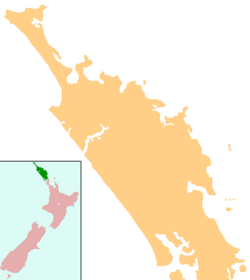Lake Ōmāpere facts for kids
Quick facts for kids Lake Ōmāpere |
|
|---|---|
| Location | Far North District, Northland Region, North Island |
| Coordinates | 35°21′S 173°47′E / 35.350°S 173.783°E |
| Primary outflows | Utakura River |
| Catchment area | 3,392.8 hectares (8,384 acres) |
| Basin countries | New Zealand |
| Max. length | 5 km (3.1 mi) |
| Surface area | 1,231.5 hectares (3,043 acres) |
| Max. depth | 2–3 m (6.6–9.8 ft) |
| Surface elevation | 237 metres (778 ft) |
Lake Ōmāpere is the largest lake in the Northland Region of New Zealand. It is located to the North of Kaikohe.
The lake sits within the Kaikohe-Bay of Islands volcanic field. The lake was formed when an ancient lava flow blocked a valley, forming the northern shoreline. It is five kilometres in length and covers 12.3 km², however it is only 2.6 metres deep (and as low as 1.5 m during summer). The lake has few inflow streams, mostly in the southern part of the lake. The Utakura River (south-western margin) is the main outflow which goes to the Hokianga Harbour. The lake catchment is predominantly pasture, with a few areas of native scrub and mature bush.
Culture and history
Lake Ōmāpere is of great cultural and environmental value to Māori tangata whenua.
In May 1845 a battle occurred during the Flagstaff War at the pā of Hone Heke at Puketutu (Te Mawhe Pā) on the shores of Lake Ōmāpere.
Water quality and ecology
The water quality in the lake is generally poor and the lake is prone to blooms of toxic algae. The lake is monitored by Northland Regional Council, and the environmental information can be viewed on the LAWA website.
The Lake Ōmāpere Restoration and Management Project aims to develop and implement a voluntary lake management strategy that will work towards improving the health of the lake and help assist the Lake Omapere Trustees in their role as kaitiaki.


